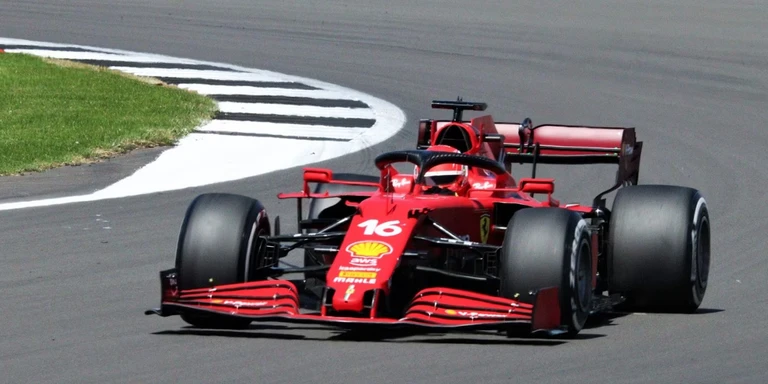Formula 1: Porpoising causing troubles for F1 teams: Ferrari’s Charles Leclerc and Alpine’s Esteban Ocon had a tough time at the Circuit de Barcelona-Catalunya on Thursday. The two drivers suffered from a phenomenon called ‘Porpoising’ where the cars were bouncing at high-speed. Follow Formula 1 updates on InsideSport.IN.
The term porpoising is named after the up and down motion that a porpoise makes. A porpoise is an aquatic marine mammal similar in appearance to a dolphin. In motorsports, the phenomenon is caused by aerodynamic instability. With F1 imposing a plethora of new regulations, especially on the aerodynamics side, the teams are still getting a hang of it.
Formula 1: What is ‘Porpoising’? Rare phenomenon becomes BIGGEST HEADACHE of Charles Leclerc, Esteban Ocon in Barcelona pre-season testing
A video emerged on Twitter of Charles Leclerc where it is evident how his car is bouncing. A violent bouncing on the suspension at high speeds is something that the drivers are feeling. The cause of this is an aerodynamic one.
Bumpy road to the top for Charles Leclerc! 🤕#F1 pic.twitter.com/Z6a5e6d3bo
— Formula 1 (@F1) February 24, 2022
Formula 1: What is ‘Porpoising’? Rare phenomenon becomes BIGGEST HEADACHE of Charles Leclerc, Esteban Ocon in Barcelona pre-season testing
The term Porpoising is back in fashion in Formula 1. It was out of motorsport for almost 40 years when there were ground effect cars. However, now it’s back haunting the teams in the pre-season testing at Barcelona.
Formula 1: What is Porpoising and why does it happen?
The leading edge of the floor or the front wing, when it is pushed closer to the ground as the downforce acting upon it increases. The closer to the ground it gets, the more powerful is the ground effect. Meaning that the air rushes faster through the shrinking gap.

It also increases the pressure difference between the underside and upper surfaces. It also increases the downforce until it stalls. At this point, much of the load is suddenly released and the front of the car rises up in response. Then it allows the ground effect to start working again. It goes on and on until it’s time for the drivers to brake at the corner.
Bumpy road to the top for Charles Leclerc! 🤕#F1 pic.twitter.com/Z6a5e6d3bo
— Formula 1 (@F1) February 24, 2022
Formula 1: What is ‘Porpoising’? Rare phenomenon becomes BIGGEST HEADACHE of Charles Leclerc, Esteban Ocon in Barcelona pre-season testing
With the underbody downforce, stiffer suspension, and stiffer tyres, the problem has returned once again. No team saw this problem in the simulation. In a wind tunnel, the stiffest belts of a rolling road are much more flexible than the track itself. So, modeling the dynamics of the springs and dampers is not possible in this situation.
This was the case back in the 1970s and 80’s when the sport had ground effect cars. It makes the underside of the car a little less switch-like. Also, it is critical changing the shape of the surfaces or even adjust the suspension. The hydraulic tricks of the suspensions which are banned this year would have been very useful.
So, we now have to wait and see what teams do to sort out this problem. But till then, the term ‘Porpoising’ will be a hot topic this year.
Formula 1: What is ‘Porpoising’? Rare phenomenon becomes BIGGEST HEADACHE of Charles Leclerc, Esteban Ocon in Barcelona pre-season testing


















































